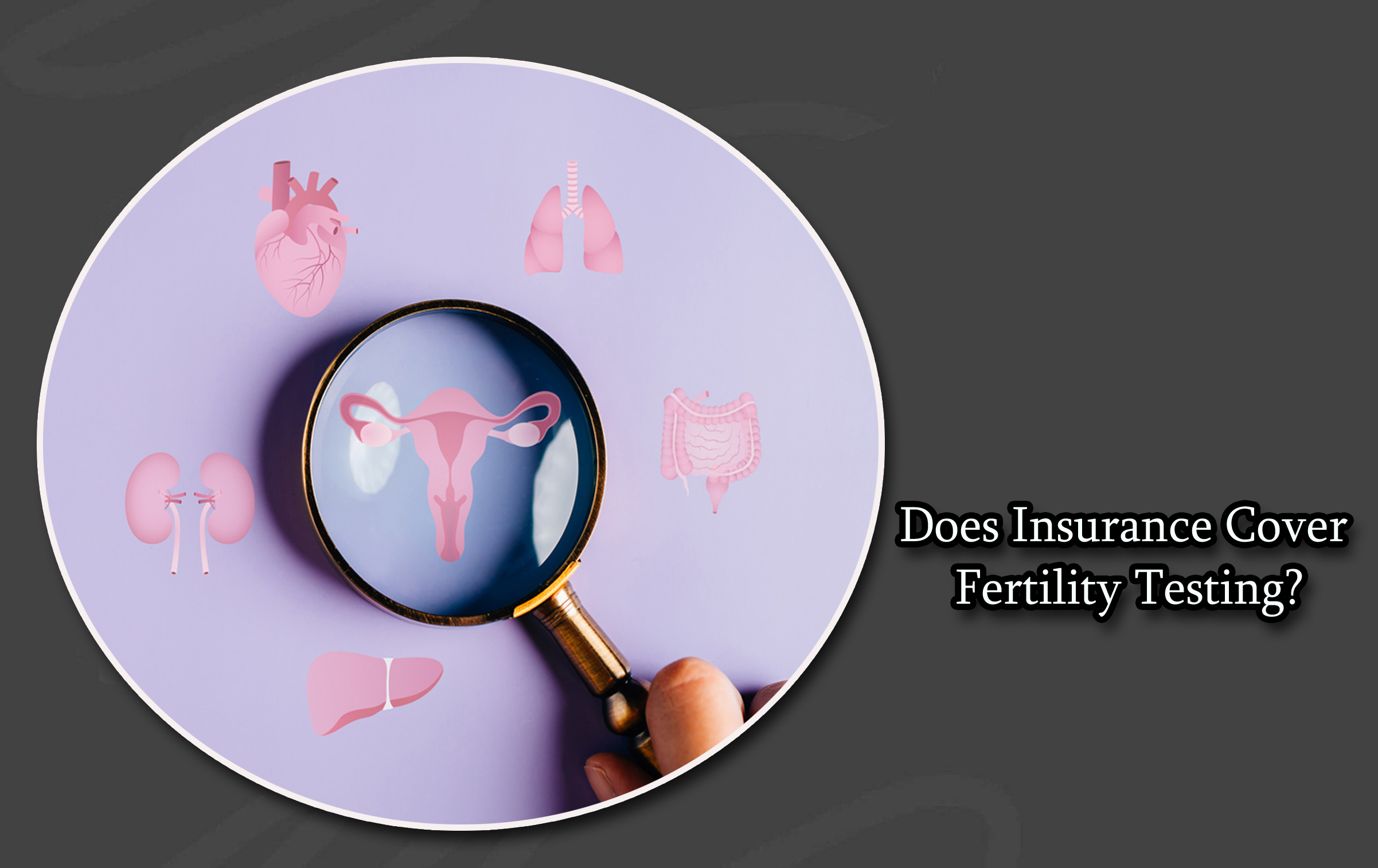
Does insurance cover fertility testing? Among women between 15 and 49, infertility is a very common problem, and according to the Center for Disease Control and Prevention, about 19% of women are not able to conceive after one year of trying.

So, to manage such issues with infertility, many individuals or couples go for fertility care to create the family they have always wanted. However, the cost of fertility care can be excessively high, but with a fertility insurance plan, you can have treatments partially or completely covered.
Besides, fertility testing is an important procedure for couples or individuals who are trying to conceive, as it offers the right approach to possible reproductive health hindrances to pregnancy.
This makes people wonder: does insurance cover fertility testing? Many wonder if coverage can help cover the associated expenses.
This is why it is important to find out whether insurance covers this reproductive health procedure and to what extent you receive coverage. Without further ado, let us get into it.
Does Insurance Cover Fertility Testing?
The answer to whether insurance covers fertility testing differs depending on your insurance plan, company, and location. Many insurance companies have plans that provide coverage of fertility testing up to an extent, while others can significantly differ as well.
Nevertheless, the coverage depends on the insurance plan you have or whether this medical procedure is medically necessary. Meanwhile, fertility testing insurance coverage might be added as a part of diagnostic services for underlying health conditions or fertility treatment benefits.
Furthermore, fertility testing insurance plans are usually divided into 2 types. There are the treatment-related tests and the diagnostic tests. Treatment-related tests might be related to certain ART procedures and might need supplemental or specialized coverage.
On the other hand, diagnostic tests’ main objective is to find the cause of infertility, and coverage for this type of coverage is commonly added in standard health insurance policies.
Which Fertility Tests Could Be Covered?
The type of test and its purpose are factors that can affect the insurance coverage for fertility tests. Although many plans do not cover fertility treatment, they will offer diagnostic testing coverage.
However, it is advisable to connect with a fertility specialist if you are 35 years old or younger and have been trying to get pregnant for a whole year.
Or if you have been trying for 6 months and you are over the age of 35. Some of the diagnoses that might be covered by your plan include:
- Imaging tests.
- Specialized diagnostic testing.
- Physical exams.
- Bloodwork.
In the meantime, remember that even though there are no coverage for some of these tests, there might be for others if you meet certain criteria.
What States Mandate Fertility Insurance Coverage?
Around 17 states have passed laws that need insurance providers to provide fertility testing insurance coverage and treatment. They include:
- Arkansas
- California
- Connecticut
- Delaware
- Hawaii
- Illinois
- Louisiana
- Maryland
- Massachusetts
- Montana
- New Hampshire
- New Jersey
- Ohio
- New York
- Rhode Island
- Texas
- West Virginia
Although 15 of these states must offer fertility care, Texas and California need insurance companies to only provide this service. Keep in mind that the details of every law differ by state.
How To Find Out If Your Insurance Covers Fertility Testing
Finding out whether your insurance plan covers fertility testing involves several steps to make sure that you prevent unnecessary costs and understand your benefits.
Here is a comprehensive guide to follow to find out if there’s fertility coverage in your insurance policy:
- Go through your current insurance policy documents.
- Look out for limitations and exclusions, reproductive health, and diagnostic services.
- Reach out to your insurance company’s customer service department.
- Ask certain questions about coverage.
- Ask for a coverage summary.
- Request for a pre-authorization.
- Submit the required documents.
- Speak to your healthcare provider.
- Go through the regulations of your state.
- Confirm and document everything.
With help from these steps, you will have a clear understanding of how fertility testing and your insurance coverage correlate and work.
Frequently Asked Questions
What Should I Do If My Insurance Doesn’t Cover Fertility Testing?
If your insurance policy does not cover fertility testing, check out other alternatives like health savings accounts (HSAs), financing through fertility clinics, or payment plans.
Are There Any Fertility Tests That Are Typically Not Covered By Insurance?
Experimental procedures, specific genetic testing, or other elective or advanced fertility tests might not be covered by insurance.
Can I Appeal An Insurance Decision If Fertility Testing Is Denied?
Certainly, policyholders have the opportunity to file an appeal to their insurer or insurance company if their coverage for fertility testing is denied. You will have to provide extra medical documentation to support you.
How Can I Find Out If My State’s Fertility Insurance Mandate Applies To My Plan?
Consult your insurance company or go through your state regulations to find out if your insurance plan is liable for mandatory state-specific fertility coverage.